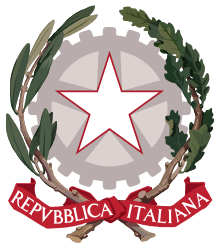Italy–Libya relations
 |
|
Italy |
Libya |
|---|---|
Italy has an embassy in Libya's capital, Tripoli, and a general consulate in Benghazi. Libya has an embassy in Italy's capital, Rome, and two general consulates (in Milan and Palermo).
History
Between 1911 and 1947, what is now Libya was an Italian colony. Both countries established diplomatic relations in 1947.
In 1970, Libya expelled all Italians from Libya and confiscated their possessions.
While Libya was considered a pariah by much of the international community under the rule of Muammar Gaddafi, Italy maintained diplomatic relations with Libya and exported a significant quantity of its oil from the country.[1] Relations between Italy and Libya warmed in the first decade of the 21st century, when they entered co-operative arrangements to deal with illegal immigration into Italy. Libya agreed to aggressively prevent migrants from sub-Saharan Africa from using the country as a transit route to Italy, in return for foreign aid and Italy's successful attempts to have the European Union lift its trade sanctions on Libya.[2]
On 30.08.2008 Italy has confessed and apologized for the damages and moral responsibility suffered by the Libyan people during the period of Italian colonialism, and that was the first time in history that a country apologizes and compensates (25 Billion Dollars plus the medical care for those who were Harmed from the remnants of colonialism) for its previous colonization.
In 2009, Gaddafi visited Italy for the first time in his 40-year rule.[3] However, when Gaddafi faced a civil war in 2011, Italy imposed a freeze on some Libyan assets linked to him and his family, pursuant to a United Nations-sponsored regime[4] and then bombed the country with the violaton of Libya of the No-Fly Zone. After the death of Gheddafi Italy recognized the National Transitional Council as the government of Libya.
On 26 September 2011, Italian energy company Eni announced it had restarted oil production in Libya for the first time since the start of the 2011 Libyan civil war. The quick return of Eni to Libyan oilfields reflected the positive relations between Rome and Tripoli under the NTC.[5]
The Italian embassy in Tripoli is one of the few Western embassies still active in Libya during the Post-civil war violence in Libya due the fact that Italy is the most important trade partner for Libya.[6]
See also
- Foreign relations of Italy
- Foreign relations of Libya
- History of Libya as Italian Colony
- Italian Libyans
References
- ↑ Janni, Paolo (1999). Italy in the European Monetary Union. CRVP. p. 29. ISBN 1-56518-128-X.
- ↑ Yaghmaian, Behzad (11 March 2011). "Out of Africa". Foreign Affairs.
- ↑ "Gaddafi in historic visit to Italy". Al Jazeera. 12 June 2009. Retrieved 11 March 2011.
- ↑ Martinuzzi, Elisa; Totaro, Lorenzo (8 March 2011). "Italian Sanctions Against Qaddafi Stop Short of Libyan-Owned Banca UBAE". Bloomberg LP. Retrieved 11 March 2011.
- ↑ "Italy's Eni: Oil production resumes in Libya". Forbes. 26 September 2011. Retrieved 26 September 2011.
- ↑ http://m.thelocal.it//20140729/renzi-calls-for-ceasefire-as-italians-flee-libya
